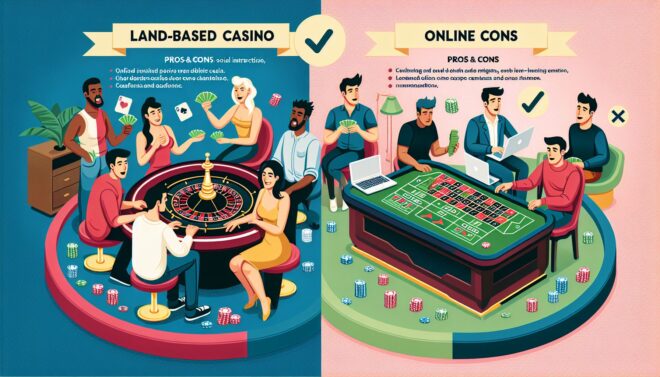In recent years, the gambling industry has undergone significant changes and transformations. From traditional brick-and-mortar casinos to online platforms and virtual reality gaming, the gambling landscape has evolved with the advancement of technology. As we move towards the next decade, it is essential to examine the current trends and make predictions for the future of gambling. In this blog post, we will delve into the emerging technologies, market opportunities, and regulatory shifts that will shape the world of gambling in the next decade.
Introduction to the Future of Gambling Industry
The future of gambling industry is a vast and lucrative market that involves activities ranging from casino games, lotteries, sports betting, and online gaming. With the global gambling market estimated to be worth $227.5 billion in 2020 and expected to reach $565.4 billion by 2026, it is a significant contributor to the global economy. The industry’s rapid growth can be attributed to several factors, including the rise of digital platforms, the widespread use of smartphones, and the shift in consumer preferences towards online gambling.
Emerging Technologies in Future of Gambling
One of the trends that will significantly impact the gambling industry in the next decade is the integration of emerging technologies. These innovative solutions have the potential to enhance the gaming experience, attract new customers, and increase revenues for operators.
Virtual and Augmented Reality
The future of gambling industry has been exploring the use of virtual and augmented reality (VR/AR) to create more immersive and engaging gaming environments. With VR technology, players can experience games in a fully digital simulated world, while AR technology can enhance the real-world gaming experience by superimposing digital elements. These technologies have the potential to revolutionize the way people gamble, making it more interactive and exciting.
Artificial Intelligence
Artificial Intelligence (AI) has already made significant contributions to the gambling industry by providing personalized recommendations. Creating more efficient customer service, and detecting fraudulent activities. In the future, AI’s role in the industry is expected to expand. With advancements in machine learning and natural language processing. AI-powered chatbots are already being used by some casinos, and in the next decade. We can expect to see more AI-powered virtual assistants that can interact with players and provide real-time assistance.
Shift towards Mobile Gaming
As smartphones become more prevalent worldwide, mobile gaming has become a growing trend in the gambling industry. With the convenience of playing anytime, anywhere, mobile gaming has attracted a new generation of players, and it is showing no signs of slowing down.
According to a report by Research and Markets, the global mobile gaming market is expected to reach $272.2 billion by 2026. This shift to mobile gaming is already evident in online casinos, with many operators offering mobile-friendly versions of their platform, making it accessible and convenient for players.
Market Opportunities in Developing Countries
While the gambling industry is well-established in mature markets like the US and Europe. There is a growing opportunity for growth in developing countries. As these economies continue to grow and become more affluent. There is an increase in disposable income and a rise in demand for entertainment activities.
However, the challenge for these operators will be to navigate the varying regulatory frameworks in these countries. With some countries still having strict regulations on gambling. It is crucial for businesses to stay updated on the ever-changing laws and adapt their strategies accordingly.
The Importance of Responsible Future of Gambling
Amidst all the advancements and opportunities in the gambling industry, it is essential to acknowledge the importance of responsible gambling. The rise of online gaming has also raised concerns about gambling addiction, especially among young people.
To tackle this issue, governments and regulatory authorities are placing more emphasis on responsible gambling measures. Such as age verification processes and self-exclusion programs. Furthermore, companies are taking responsibility for promoting responsible gambling by providing responsible gambling tools and resources to their customers.
Shift in Consumer Preferences
The next decade will also see a significant shift in consumer preferences and habits, which will impact the gambling industry. With millennials and Gen Z becoming the dominant consumer groups, we can expect to see a greater demand for more innovative and tech-savvy gaming experiences.
Moreover, these demographics also have different cultural and social views, leading to a change in the types of games and activities they prefer. This shift in preferences is a driving force for the industry to continue innovating and creating unique and personalized gaming experiences to attract and retain these consumers.
Conclusion
The gambling industry has come a long way in the past decade, and with the advancements in technology. The next decade promises even more significant changes. From virtual reality gaming to AI-powered assistance, mobile gaming to market opportunities in developing countries, there are many exciting possibilities for the future of gambling.
However, with these opportunities also come challenges, such as navigating regulatory environments. Addressing responsible gambling concerns, and adapting to consumer preferences. As the industry continues to evolve. The focus on responsible gambling must remain a top priority to ensure a sustainable and ethical future for the industry.



